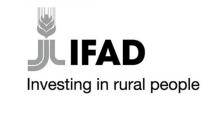Resource information
The failure of rural economies to deliver decent work to their young people affects national economies, threatens political stability, nurtures extremism and causes socially and economically disruptive migration. Globally, youth are two to three times more likely than adults to be unemployed.
Rural youth, especially young women and girls, are often excluded from participation in organizational structures, decision-making and leadership of political processes. Rural young women and girls also have additional burdens related to early marriage and pregnancy, leading to further exclusion due to intergenerational cycles of malnutrition and poverty.
Overall, rural young people have limited access to opportunities and resources such as land ownership, water, markets and finance – yet they have the potential to become the driving force for inclusive rural transformation. Creating decent job opportunities for rural young women and men and tapping into their potential for innovation and entrepreneurship can generate significant social and economic returns for rural areas in the developing world, making it an effective target for development cooperation.
Depending on the context, this can include young people with disabilities, young people from minority ethnic and religious groups, geographically isolated young people, and many others.
This report offers practical guidance on how IFAD can support the engagement of marginalized young people, paying specific attention to their diverse and complex needs and addressing the real causes of their discrimination.



